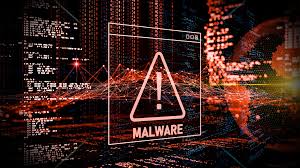
Malware Analyst In Chennai
Malware Analysts: Uncovering Hidden Cyber Threats
In today's rapidly evolving cyber landscape, threats are becoming more sophisticated and harder to detect. Malware — malicious software designed to damage, disrupt, or gain unauthorized access to systems — is one of the most persistent dangers facing businesses. To fight this hidden enemy, organizations rely on the expertise of Malware Analysts.
At Sharaa Group, we recognize that combating cyber threats requires specialists with the skills to detect, analyze, and neutralize malware. In this article, we explore the essential role of Malware Analysts, their impact on cybersecurity, and how Sharaa Group helps companies source top talent for this critical function.
What is a Malware Analyst?
A Malware Analyst is a cybersecurity professional who studies malware to understand how it operates, how it can be detected, and how it can be mitigated. Their job involves reverse-engineering malicious software, identifying vulnerabilities, and supporting incident response teams with crucial intelligence.
In simple terms, Malware Analysts are the detectives of the cybersecurity world, examining dangerous code to uncover its secrets and stop it from causing harm.
Their key objectives include:
-
Identifying new malware strains and attack vectors
-
Analyzing how malware spreads and executes
-
Developing signatures and tools to detect malware
-
Supporting incident response and threat intelligence operations
-
Helping build stronger defenses against future attacks
Why Malware Analysis is Vital
Malware attacks are not only more frequent — they are more damaging than ever. Ransomware, trojans, spyware, worms, and fileless malware constantly evolve, targeting businesses of all sizes.
Here’s why Malware Analysts are essential:
-
Early Detection of Advanced Threats
By understanding how malware behaves, analysts can detect threats before they cause widespread damage. -
Improved Threat Intelligence
Malware analysts provide detailed insights that help organizations anticipate and defend against new attack techniques. -
Faster Incident Response
Knowing the nature of an attack allows security teams to respond faster and more effectively. -
Protection of Critical Data
Malware analysis helps prevent sensitive data breaches and unauthorized system access. -
Enhancing Overall Security Posture
Findings from malware analysis inform better security policies, configurations, and employee training.
Responsibilities of a Malware Analyst
Malware Analysts perform both static and dynamic analysis of suspicious files and software.
Core responsibilities include:
-
Reverse-engineering malware binaries to understand functionality
-
Using sandboxes and virtual environments to safely observe malware behavior
-
Documenting findings in detailed technical reports
-
Developing detection signatures for antivirus and endpoint protection systems
-
Collaborating with SOC teams, threat hunters, and forensic analysts
-
Tracking malware families and identifying threat actor tactics, techniques, and procedures (TTPs)
They also play a critical role in educating and advising teams on best practices for malware prevention.
Essential Skills and Tools for Malware Analysts
At Sharaa Group, when sourcing Malware Analysts for our clients, we seek candidates with deep technical knowledge, analytical skills, and strong attention to detail.
Key technical skills include:
-
Proficiency in programming languages like Assembly, C/C++, Python
-
Knowledge of operating systems internals (Windows, Linux)
-
Expertise in reverse engineering tools such as:
-
IDA Pro
-
Ghidra
-
OllyDbg
-
x64dbg
-
-
Experience with dynamic analysis tools like Cuckoo Sandbox and Wireshark
-
Understanding of malware obfuscation and encryption techniques
-
Knowledge of network protocols and threat hunting
Top certifications that boost a Malware Analyst's profile:
-
GIAC Reverse Engineering Malware (GREM)
-
Certified Malware Analyst (CMA)
-
Certified Ethical Hacker (CEH)
-
Certified Information Systems Security Professional (CISSP)
Industries That Need Malware Analysts
While every business that operates online can be a target, some sectors are particularly vulnerable and rely heavily on Malware Analysts:
-
Financial Services (banks, fintech companies)
-
Healthcare and Pharmaceuticals (patient data protection)
-
Government and Defense (national security)
-
Technology and Software (SaaS platforms, apps)
-
Manufacturing and Energy (critical infrastructure protection)
-
Retail and E-commerce (payment system security)
How Sharaa Group Connects Businesses with Malware Analysis Experts
At Sharaa Group, we specialize in providing tailored workforce solutions that connect companies with highly skilled cybersecurity professionals.
Our approach includes:
-
Expert Candidate Sourcing: Finding Malware Analysts who understand the complexities of modern cyber threats.
-
Skill-Matched Placement: Aligning analysts with industries and projects that fit their specific expertise.
-
Consultative Talent Strategy: Advising organizations on building and maintaining effective malware analysis capabilities.
-
Continuous Learning Support: Helping teams stay updated with emerging malware trends and analysis tools.
From startups building their first security team to enterprises securing global operations, Sharaa Group is your trusted partner for cybersecurity staffing.
Conclusion
In the fight against evolving cyber threats, Malware Analysts are invaluable defenders who uncover, understand, and neutralize hidden dangers. Their work prevents costly breaches, protects sensitive data, and strengthens business resilience.

